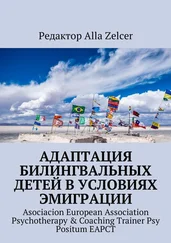James Walsh - Psychotherapy
Здесь есть возможность читать онлайн «James Walsh - Psychotherapy» — ознакомительный отрывок электронной книги совершенно бесплатно, а после прочтения отрывка купить полную версию. В некоторых случаях можно слушать аудио, скачать через торрент в формате fb2 и присутствует краткое содержание. Жанр: foreign_prose, psy_theraphy, foreign_edu, foreign_antique, на английском языке. Описание произведения, (предисловие) а так же отзывы посетителей доступны на портале библиотеки ЛибКат.
- Название:Psychotherapy
- Автор:
- Жанр:
- Год:неизвестен
- ISBN:нет данных
- Рейтинг книги:4 / 5. Голосов: 1
-
Избранное:Добавить в избранное
- Отзывы:
-
Ваша оценка:
- 80
- 1
- 2
- 3
- 4
- 5
Psychotherapy: краткое содержание, описание и аннотация
Предлагаем к чтению аннотацию, описание, краткое содержание или предисловие (зависит от того, что написал сам автор книги «Psychotherapy»). Если вы не нашли необходимую информацию о книге — напишите в комментариях, мы постараемся отыскать её.
Psychotherapy — читать онлайн ознакомительный отрывок
Ниже представлен текст книги, разбитый по страницам. Система сохранения места последней прочитанной страницы, позволяет с удобством читать онлайн бесплатно книгу «Psychotherapy», без необходимости каждый раз заново искать на чём Вы остановились. Поставьте закладку, и сможете в любой момент перейти на страницу, на которой закончили чтение.
Интервал:
Закладка:
Moreover, the special interest of the physician in these cases, and his administration of a remedy with confidence which inspired the patient, undoubtedly did much good. Pneumonia is one of those diseases in which the patient is likely to be greatly depressed unless he is surrounded by favorable mental influences, and is encouraged to believe that he is going to get well. Every physician has probably had cases in which patients died, not because of the severity of the disease, but because they gave up the struggle in fright. If several of a man's friends have died of pneumonia during the year or two before he gets it, he is likely to conclude, especially if he is of the worrying kind, that his doom is sealed as soon as the diagnosis of pneumonia is made. If this thought persists hardly anything will save him. He must be assured that pneumonia is not necessarily serious, that there are remedies that influence it, and that his own case is particularly likely to respond favorably to them.
We now realize that nursing is the most important element in the treatment of pneumonia. Such attention to the patient as will treat symptoms so as to prevent them from disturbing him, will secure him against discouragement, will arouse his resistive vitality by assuring him of a favorable termination. This will above all prevent the patient from feeling that he is attacked by a fatal disease. The presence of the doctor and his general directions make the patient realize how thoroughly the course of the disease is understood and therefore how likely it is that a favorable termination will be brought about. We know how much the mind may interfere with the breathing if allowed to dwell on it, and therefore if the patient becomes over-solicitous about the condition of his lungs he seriously hampers his recovery. In pneumonia the physician has always brought relief, and he has usually attributed his success to his drugs, though he has felt, too, that the confidence inspired by him meant much for his patient. It would have been better had he exaggerated the mental influence rather than the drug power.
Typhoid Fever.—Typhoid fever is another affection for which we have many therapeutic suggestions, with wide vogue, that are nevertheless almost directly opposed to what we know about the pathology and etiology of the disease. Typhoid fever runs its course in from between twenty to thirty days. The majority of people who take the affection and who give in to it early enough, so as not to wear themselves out, come through successfully. Complications may carry them off, but we expect uncomplicated cases to recover. The longer course of typhoid has made the action of drugs appear less striking than in pneumonia and erysipelas, but a number of remedies have been proclaimed to shorten its course, to make it less dangerous, to cure, and sometimes actually to abort it. So often have these come and gone that the physician who knows the history of therapeutics is likely to be suspicious of them. Even at present there are certain remedies supposed to have this effect, but one does not find them used in hospitals where large numbers of cases are seen and where there are opportunities for comparative observation. They are used only by physicians who see a few cases every year, and to whom coincidences may mean much more than they are likely to when extensive statistics of the disease are made.
As a rule, these remedies are founded on some real or supposed scientific principle. The antiseptic treatment of typhoid, for instance, was based on the supposition that if one can kill the microbes in the intestine the disease will run a shorter course. The principle apparently fails to note that any remedy likely to kill microbes is still more likely to kill cells of other kinds, and above all human cells lessened in their resistive vitality by disease. The advocates of this remedy also forget that typhoid is now recognized as a general disease with only a local manifestation in the intestines, and that the treatment of this local manifestation is no more likely to affect the course of the disease than the treatment of the symptoms of typhoid would be likely to do. But the giving of remedies with the thoroughgoing confidence that awakens trust is in itself an excellent therapeutic agent, and patients thus treated are sure to be benefited in so far as they share the physician's confidence. Just the same effect, however, can be produced by careful nursing and by making the patient realize that even though typhoid fever runs a definite course, which we cannot abbreviate nor probably influence, we can by nursing so prevent complications as to make a fatal termination almost impossible.
Whooping Cough.—Perhaps none of the common affections illustrate the influence of psychotherapy better than it is exemplified in the history of the therapeutics of whooping cough. We have had all sorts of remedies suggested for it, and most of them have been introduced by those who had found them of great service in shortening the course of the disease, and in making the "whoop" disappear much sooner than would otherwise be the case. There have been internal and external remedies, inhalations and inunctions, as well as many less likely methods of treatment. Practically none has maintained itself. Whooping cough is likely to run a rather long course. We know now that as a consequence of the strain upon the lungs tuberculosis not infrequently develops. Whenever this is true the tendency to cough is likely to be prolonged far beyond the natural period, and from habit ingrained upon the nervous system the "whoop" is likely to continue, though there is no necessity for it. It is this secondary period of the affection that the remedies have succeeded in shortening either apparently or in fact.
Practically anything that is done for children is likely to instil the persuasion that the "whoop" should disappear. Anything impressive will arouse this favorable attitude of mind toward the affection, and hence the remedies have obtained a reputation. In the interior of many countries draughts of sea water are a popular remedy for whooping cough. Sea water, it is said, loses its efficacy if carried long distances from the shore, so the children must be brought to the seaside. In mining regions children are taken down into the mines. The experience is enough of itself, especially when talked over a good deal in the family, and when the occasion is often the first outing that the child has had for months, to bring with it such improvement in health as will enable it to suppress the whoop. If the exposure to the mine air does not bring improvement, it is said to be either because the child was not taken deep enough, or because there was no gas in the air, or the wrong sort of mine was chosen, or some other plausible excuse is advanced.
The development of scientific medicine, or at least what we are pleased to think of as more scientific therapeutics than they had in the past, has not kept us from having many and varied remedies for whooping cough, which, after being introduced on apparently good authority and apparently accomplishing many good results, have eventually been allowed to drop into innocuous desuetude. Whenever the administration of any such remedy was accompanied by strong suggestion—when the internal remedies were particularly distasteful, or the inhalations rather trying or at least sure to attract the attention of the sufferers—then good results followed. But the cures were due to the mental influences at work. In recent years various serums, including diphtheria serum, have been tried with reported good results. The giving of the injection is one of those little operations that is likely to impress itself forcibly upon the child's mind, and when given in connection with the promise, implied or explicit, of improvement it is easy to understand that there will be a tendency to lessening the frequency of the whoop, at least during the secondary periods of the disease.
Читать дальшеИнтервал:
Закладка:
Похожие книги на «Psychotherapy»
Представляем Вашему вниманию похожие книги на «Psychotherapy» списком для выбора. Мы отобрали схожую по названию и смыслу литературу в надежде предоставить читателям больше вариантов отыскать новые, интересные, ещё непрочитанные произведения.
Обсуждение, отзывы о книге «Psychotherapy» и просто собственные мнения читателей. Оставьте ваши комментарии, напишите, что Вы думаете о произведении, его смысле или главных героях. Укажите что конкретно понравилось, а что нет, и почему Вы так считаете.












